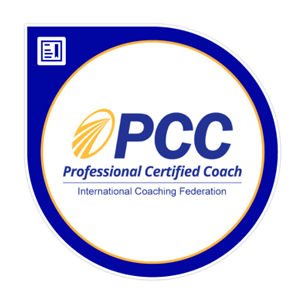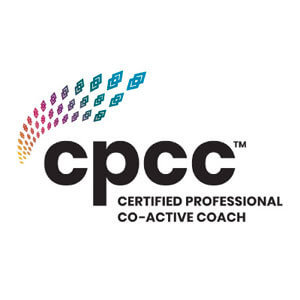- How to Stop Self Sabotaging Your Business - April 14, 2022
- Battling Your Saboteur - September 22, 2021
- Celebrating Something Special with High Voltage Leadership! - June 24, 2021
 7 Questions You Need To Ask Before Hiring a Coach
7 Questions You Need To Ask Before Hiring a Coach
No matter what stage you are at in your business, hiring a coach can help you to progress your leadership faster than you ever could on your own. An experienced coach should be objective, know your business inside and out, and always be willing to provide constructive feedback. Making the decision to work with a coach is a significant step into turning your ideas for your business, and your own leadership, into a reality.
Once you’ve made that decision, how do you then choose a coach? Hiring a coach is an investment of your time and money — you don’t want to waste either. If you were looking for an accountant or financial advisor, you would want to know if they have the knowledge and expertise you’re after. So why not do the same for a coach?
Buyer Beware
If you’ve done any research online, you have seen there are lots of people calling themselves a coach. So how can you tell a great coach from someone who is not so great one? First off, you need to do your research. When interviewing prospective coaches, the first thing you need to look for is whether or not they are trained and certified. Unfortunately, there are many individuals who advertise themselves as ‘coaches’ but haven’t any training at all. Just like you wouldn’t hire a lawyer who hadn’t gone to law school, and hadn’t passed the bar exam, hiring a coach who isn’t certified is a dicey decision.
Why Is It Important To Be Certified?
There are some great reasons to look for a professionally trained and certified coach. First of all, it indicates that they are serious about being a professional coach. Like any other professional, such as an accountant or engineer, a certified coach has specific training, and has agreed to a code of conduct and ethics. If someone is calling themselves a coach, but has no training or certification, they are not bound by any code of conduct, or ethical standard. When a coach has taken the time to undergo certification, it indicates there is a level of professional development, knowledge, and skill as a coach, and the ability to provide value.
7 questions you need to ask a prospective coach
When you’re ready to start working with a coach, and are beginning the process of researching, interviewing and selecting that special person you want to work with, there are several questions that you need to ask. Here’s seven of the most important ones you need answered:
1. What certification(s) do you have?
When you are considering working with a professional coach it’s important to ensure that they are a certified professional coach. The International Coach Federation (ICF) is the overarching governing body for the coaching profession, and is the gold standard in coaching certification. It offers three levels of certification:
-
Associate Certified Coach (ACC)
-
- This basic level of certification ensures that the coach has undergone professional coach training, worked with their own mentor coach, and has at least 100 hours of coaching under their belt. This is the minimum certification level you should be considering when hiring a professional coach.
-
Professional Certified Coach (PCC)
-
- At this level, this person has coached for over 500 hours. Again, they’ve achieved the basic level of training (ACC), had mentor coaching and are meeting the requirement for ongoing professional development. Most people who are experienced and professional coaches have this designation.
-
Master Certified Coach (MCC)
- This is the Master Yoda level of coaching! A coach at this level has over 2500 hours of coaching, and a professional coaching career spanning a least a decade. This is the level every professional coach aspires to.
👉 I am proud to be a member of the ICF, globally and here in Calgary, and I am currently a PCC Certified coach.
2. Where did you get your certification?
There are a ton of different organizations that offer coaching certifications, but not all of them are equal. When I began my search for the perfect place to learn my coaching craft, I searched long and hard, and considered many different things. When you’re looking for a coach, I think that it’s important that you do the same. Some training programs don’t provide anywhere near the level of training required to qualify for one of the ICF designations we just discussed. There are programs that offer quick, weekend training, their own “certification”, but are not fully accredited. That doesn’t mean that they don’t train coaches, but it does indicate the level of competency, professionalism, and ethical standards. That’s why I chose to become ICF certified.
👉 Just like I did my homework when I was looking for my coach, you definitely want to do yours! You can find out more here.
3. Do you have any other certifications?
This is a great question to ask any prospective coach that you think you may want to work with! Many coaches will have at least one other certification, in coaching, but also in other fields and specialities. The certification that I know has been super valuable to me (and the one that my own coach has too) is the Certified Professional Co-Active Coach designation (CPCC). This certification is at least a year-long process through the Co-Active Institute. The process to get a CPCC is very rigorous; including group training, mentor coaching, triad coaching, tons of homework, and some of the most direct and meaningful feedback I’ve ever received! It’s an intense process that turns you into a powerhouse coach when you’re done!
👉 Don’t be afraid to ask a prospective coach what other designations they have. Other certifications, in HR, Psychology, Marketing, Counselling, etc. can all add value to you as a client.
4. What kind of clients have you worked with in the past?
I also believe it’s important to ask a prospective coach about the kind of clients they have worked with. What industries have they been in? What have their roles been? What problems have they solved for their clients? What goals have they helped their clients to achieve? Asking for referrals, from clients past or present, that you could speak to give you an idea of whether this person will be a good fit for you as a coach.
👉 Most coaches will happily provide you with testimonials for a variety of clients that they’ve worked with.
5. What’s your approach or philosophy?
Finding a coach that you feel really confident and comfortable with is probably the most important aspect when you are hiring a coach. In a coaching relationship you need to be completely yourself, and feel totally comfortable. A great coach will create a space where you can be authentic, unapologetically emotional, free to explore and dream big, and totally yourself. A great coach will be able to articulate their process so that you can understand, and automatically feel connected to it.
👉 This is a gut check moment. If you spend time with a prospective coach, and it feels awkward or uncomfortable, then they may not be the right coach for you. Remember If you don’t feel safe, you won’t be able to be your authentic self, and you won’t get what you want from the coaching relationship.
 6. Do you have a specialty or niche you work in?
6. Do you have a specialty or niche you work in?
Some coaches have specific niches or specific groups of people they prefer to work with. One of my coaching colleagues is a grief coach; she works mainly with people that have family members with terminal illnesses or have died. She embraces the conversation around death and grief and celebrates it, talking about it in a frank and very positive way. This approach won’t work for everyone, and that’s ok. You need to find a coach that has the right approach for you, and what you’re looking to work on.
In my case, I like to work with women who own small to medium sized businesses. These are women that I know struggle to find balance, and blend their life and their work. It often leaves them feeling frustrated, defeated, and pretty isolated. It’s not that I don’t have some male clients, but it’s women I really love to spend my time with.
👉 When you are initially interviewing prospective coaches, it’s important that you discuss their niche, as well as approach, so that you understand and feel completely comfortable that they are the right coach for you.
7. What’s the cost of coaching?
Last but not least, it’s important to understand the money issue — what does this coach charge and how does the coach/client relationship work inside of that cost. The cost of coaching varies greatly, depending on the experience, niche, designations, industries and specializations. There is no one set fee schedule. So it’s important that you understand completely what the cost is, and what you’re getting for that money. Some coaches will charge by the hour, some have set packages, and others really customize the coaching for your specific goals and agenda.
As an example, I ask that all my clients make a commitment of at least 3 months to the coaching relationship. I believe that this is the minimum amount of time needed to really start experiencing the transformative outcomes of a coaching engagement. I also ask my client to put a lump sum down up front. This is the “put your money where your mouth is” principal. If we have a financial commitment, we are far more likely to give it our best!
👉 Every single one of my coaching engagements is completely customized and totally tailored to what my client needs. No two packages are the same. And I love connecting with my clients between sessions. Whether it’s a quick text, and phone call, or even an email, it allows us to deepen our connection and get more out of the coaching. I am always thrilled to hear updates from my clients about what they’re experiencing and how they’re growing.
Hiring A Coach Is A Big Step
There’s no doubt, engaging a coach is a bold move. As I said earlier, there are many people who call themselves “coaches”, but they are really consultants. Giving you advice, their own patented system, or telling you what worked for them. Coaching, in its most impactful form, allows you to explore what’s right for you and your business. With the right person, who has the right training, certifications, approach and speciality, you will feel empowered, enabled, energized and ready to experience all the incredible transformation. Just make sure that you do your due diligence and ask the right questions.
Up Next
Don’t miss Part II, coming later this week — where I’ll talk more about my designations, my own journey as a coach, and of course, my own approach to the coaching process. You won’t want to miss it!

